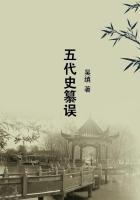RELIGIOUS CONDITION OF ENGLAND BEFORE THE REFORMATIONWilkins, /Concilia Magnae Britanniae/, iii., 1737. /Historia Regis Henrici Septimi a Bernardo Andrea Thosolate/ (André of Toulouse), edited by J. Gairdner, 1858. Capella-Sneyd, /A Relation or True Account of the Isle of England ... under Henry VII./ (written by Capella, the Venetian Ambassador, 1496-1502, and edited by C. A.
Sneyd, 1847). /A London Chronicle during the reigns of Henry VII.
and Henry VIII./ (Camden Miscellany, vol. iv., 1859). Sir Thomas More's /Utopia/ (written 1516, edited by E. Arber, 1869). More's English works, edited by William Rastell, 1557. Bridgett, /Life and Writings of Sir Thomas More/, 1891. Busch-Todd, /England under the Tudors/, 1892-95. Gasquet, /The Eve of the Reformation/, 1900;/Henry VIII. and the English Monasteries/, 1888; /The Old English Bible/, etc., 1897; /The Great Pestilence/, 1893; /Parish Life in Mediaeval England/, 1906; /English Monastic Life/, 1904. Capes, /AHistory of the English Church in the Fourteenth and Fifteenth Centuries/, 1909. Seebohm, /Oxford Reformers/ (3rd edition), 1877.
Stone, /Reformation and Renaissance Studies/, 1904. Gairdner, /Lollardy and the Reformation/, vol. i., 1908. Lilly, /Renaissance Types/, 1901. Bridgett, /History of the Holy Eucharist in Great Britain/ (new edition, 1908). Rivington, /Rome and England/, 1897.
Lingard, /History of England/, 10 vols., 1849. Hunt-Poole, /Political History of England/, v., 1910. /Cambridge Modern History/, vol. i., 1902.
With the advent of Henry VII. to the throne (1485) a new era opened in the history of England. The English nation, weakened by the Wars of the Roses and tired of a contest that possessed little interest for the masses, was not unwilling to submit itself without reserve to the guidance of a strong ruler provided he could guarantee peace both at home and abroad. Practically speaking, hitherto absolutism had been unknown. The rights that had been won by the barons on the plains of Runnymede were guarded jealously by their descendants, and as a result the power of the king, more especially in regard to taxation, was hedged round by several restrictions. But during the long struggle between the houses of Lancaster and York many of the great feudal barons had fallen on the field of battle or by the hands of the executioner, and the power of the nobles as a body had been undermined. While the Lords could muster their own retainers under their standard and put into the field a strong army almost at a moment's notice, it was impossible for the sovereign to rule as an absolute monarch. It was because he recognised this fact that Henry VII. took steps to enforce the Statute of Liveries passed by one of his predecessors, and to provide that armies could be levied only in the king's name.
The day of government by the aristocracy had passed for ever to be succeeded by the rule of the people, but in the interval between the sinking of one and the rise of the other Tudor absolutism was established firmly in England. In selecting his ministers Henry VII.
passed over the nobles in favour of the middle classes, which were gaining ground rapidly in the country, but which had not yet realised their strength as they did later in the days of the Stuarts. He obtained grants of tonnage and poundage enjoyed by some of his Yorkist predecessors, had recourse to the system of forced grants known as benevolences, set up the Star Chamber nominally to preserve order but in reality to repress his most dangerous opponents, and treated Parliament as a mere machine, whose only work was to register the wishes of the sovereign. In brief, Henry VII., acting according to the spirit of the age, removed the elements that might make for national disunion, consolidated his own power at the expense of the nobility, won over to his side the middle and lower classes whose interests were promoted and from whom no danger was to be feared, and laid the foundations of that absolute government, which was carried to its logical conclusions by his son and successor, Henry VIII.















